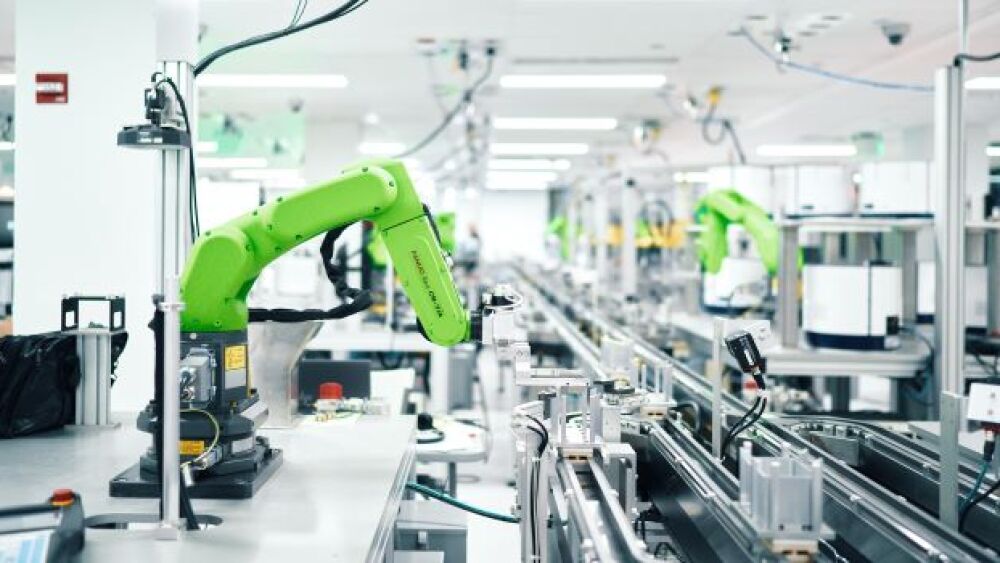Ginkgo Bioworks opened its wallet Tuesday and snapped up Circularis and Altar to strengthen its cell and gene therapy programs and bolster its manufacturing capabilities.
Courtesy of Ginkgo Bioworks
Massachusetts-based Ginkgo Bioworks opened its wallet Tuesday and snapped up Circularis and Altar to strengthen its cell and gene therapy programs and bolster its manufacturing capabilities.
Financial terms of both deals were not disclosed.
Anna Marie Wagner, senior vice president of corporate development at Ginkgo Bioworks, told BioSpace that the company is always on the lookout for new technologies that will enhance its own capabilities to deliver for its clients. She said the technologies at both Altar and Circularis were “obvious fits” for Ginkgo.
“Altar specifically supplements our strong rational gene editing approaches with a more robust directed evolution pipeline, allowing us to better take advantage of biology that we don’t yet understand. Circularis adds richer capabilities to our emerging cell and gene therapy focus area and we are excited about the growth we are seeing in that space,” Wagner said.
Circularis’ circular RNA
Through this deal, Ginkgo Bioworks gains Circularis’ circular RNA (circRNA) capabilities and a promoter screening platform which are expected to boost cell and gene therapy treatments for rare diseases.
In its announcement, Ginkgo stated the Circularis platform allows ultra-high-throughput screening of promoters and other enhancers, improving therapeutic potential and the company’s capabilities for its gene therapy partnerships.
Over the past several years, Ginkgo has expanded its presence in the cell and gene therapy space, mainly through an adeno-associated virus capsid manufacturing partnership forged last year with Biogen.
Circularis’ circular RNA platform will enable Ginkgo to identify novel promoters that have the appropriate strength and tissue-specificity to meet customer modality needs, the company announced. Ginkgo said the promoter libraries will provide customers that develop gene therapies “a solution that works across any range of cell or organism models.”
For cell therapy developers, the Circularis platform is expected to provide Ginkgo with the ability to identify “context-specific promoters,” such as those that modulate gene expression in the tumor microenvironment.
“Circularis is developing cutting edge circular RNA technology, and we expect a growing number of therapies to be based on circular RNA in the coming years, given the advantages circRNA can provide over other nucleic acid approaches, such as mRNA. Additionally, their promoter screening platform allows for ultra-high-throughput screening of promoters and other enhancers to accelerate our work across cell and gene therapy,” Wagner said.
Altar’s Adaptive Evolution Platform
The acquisition of French biotech company Altar was sparked by that company’s development of a proprietary adaptive evolution platform that Ginkgo has worked with in the past.
In its announcement, Ginkgo said a “fleet of Altar’s automated adaptive laboratory evolution (ALE) instruments will be integrated into Ginkgo’s Foundry” in order to serve the company’s customers across multiple industries, including health care. Altar’s technology can sustainably adapt microorganisms to conditions demanded by industrial companies for commercial-scale projects.
Incorporating Altar’s ALE platform into Ginkgo’s own strain engineering capabilities will enable routine engineering of target phenotypes the company’s clients require, according to Ginkgo. Ginkgo’s existing suite of test workflows will characterize and further validate those strains.
In a brief statement, Nikos Reppas, senior director of foundry technology at Ginkgo, expressed excitement about the addition of Altar’s ALE technology. He said Altar’s capabilities will boost Ginkgo Bioworks’ own ability to serve its clients.
“As the range of programs we work on continues to expand, it is imperative that we have the best tools in rational design as well as the ability to leverage the inherent diversity and creativity that emerges from evolutionary processes,” Reppas said in a statement.
Those aren’t the only partnerships the company has forged. In August, Ginkgo gained an epidemiological data infrastructure asset from Baktus, Inc. that is expected to bolster the company’s growing biosecurity platform.
Additionally, the deal will allow the company to offer expanded epidemic tracking, modeling, and forecasting capabilities to its clients. Ginkgo announced at the time it will integrate multiple ongoing epidemiological analysis projects and a team of epidemiological data experts into its biosecurity and public health initiative, Concentric by Ginkgo.





